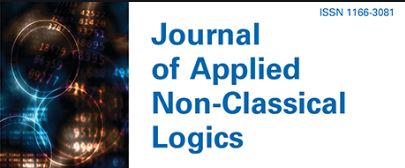(2019) Reconstructor: a computer program that uses three-valued logics to represent lack of information in empirical scientific contexts, Journal of Applied Non-Classical Logics, DOI: 10.1080/11663081.2019.1703467

Abstract
In this article, I develop three conceptual innovations within the area of formal metatheory, and present a computer program, called Reconstructor, that implements those developments. The first development consists in a methodology for testing formal reconstructions of scientific theories, which involves checking both whether translations of paradigmatically successful applications into models satisfy the formalisation of the laws, and also whether unsuccessful applications do not. I show how Reconstructor can help carry this out, since it allows the end-user to specify a formal language, input axioms and models formulated in that language, and then ask if the models satisfy the axioms. The second innovation is the introduction of incomplete models (for which the denotation of some terms is missing) into scientific metatheory, in order to represent cases of missing information. I specify the paracomplete semantics built into Reconstructor to deal with sentences where denotation failures occur. The third development consists in a new way of explicating the structuralist notion of a determination method, by equating them with algorithms. This allows determination methods to be loaded into Reconstructor and then executed within a model to find out the value of a previously non-denoting term (i.e. it allows the formal reconstruction to make predictions). This, in turn, can help test the reconstruction in a different way. Finally, I conclude with some suggestions about additional uses the program may have.
KEYWORDS: Formal metatheory, computer program, Reconstructor, cartesian mechanics, metatheoretical structuralism
